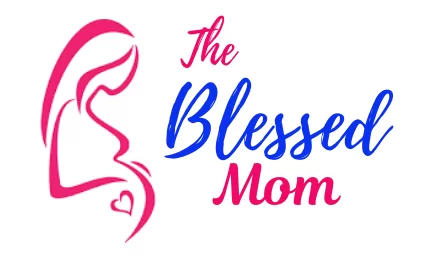As vegetarianism is becoming increasingly popular around the globe, many people are choosing to quit meat to stop animal cruelty. While switching to a vegan diet is good for the health of a normal human, can we say the same for a pregnant woman? During pregnancy, major changes take place in a woman’s body and eating well is a must. So, someone who does not have non-veg food cannot help wondering if a vegan pregnancy diet will be able to provide all the essential nutrients to the mother and the baby.
Studies have proved that vegans have lower risks of developing heart ailments, type 2 diabetes, and several cancers. But will a diet devoid of meat, cow milk, fish, and eggs lead to nutritional deficiencies in a pregnant woman. We all know that deficiencies can be dangerous for the fetus growing in your womb. So, this article will share everything you need to know about vegan maternal health.
How Safe is a Vegetarian or Vegan Diet for Expecting Moms?
Meat eaters often criticize vegan diets saying that they lack nutrients and are inappropriate for sensitive phases like pregnancy. That’s because when a woman conceives, her body needs more omega-3 fatty acids, iron, iodine, zinc, calcium, protein, folate, and vitamin B12. A low intake of these vital nutrients can result in pregnancy complications, poor maternal health, and birth defects in the baby. For example, if your food is not rich in vitamin B12, the chances of having a miscarriage or preterm birth increases.
So, if you are determined to follow a vegan diet, you have to be strategic. Even without having dairy products, eggs, and chicken, you can be certain that the baby in your womb is growing adequately. If you are still skeptical, The U.S. Academy of Nutrition and Dietetics as well as other reputed nutrition societies have declared that a vegetarian diet is safe for any stage of your life, including pregnancy.
Benefits of Switching to a Vegan Diet During Pregnancy
Properly planned plant-based pregnancy meals will provide numerous health benefits to your baby and you. That’s because plant-based food is high in fiber and low in unhealthy fats and sugar. So, throughout pregnancy, you won’t have to deal with gestational diabetes, high BP, and obesity.
Need more reasons to have healthy vegan diet during your first trimester? As you will have plenty of veggies daily, you will be safeguarded against preeclampsia – a health complication resulting from the sudden rise in BP during pregnancy. Your vegan diet may also decrease the chances of DNA damage and get rid of developmental issues in the baby.
Common Concerns Regarding a Vegan Prenatal Diet
As vegan meals exclude animal products, it is naturally low in some nutrients. If your diet fails to compensate for those nutrients, your baby might be at risk. So, make sure your food contains the following key nutrients in vegan pregnancy:
- Vitamin B12- Most vegan diets lack vitamin B12. Its deficiency can cause miscarriage, preterm birth, malformations in the baby, and gestational diabetes.
- Vitamin D- Tests reveal that vegan women tend to have low levels of vitamin D irrespective of the diet chart they follow. Low birth weight, miscarriage, and preeclampsia can take place due to lack of vitamin D.
- Protein- If the protein intake during pregnancy is insufficient, the growth of your baby will slow down. Then your baby’s muscles won’t develop properly.
- Iodine- Does your vegan diet have iodized salt? If your answer is no, you may notice poor growth in the infant as well as compromised mental and thyroid function.
- Omega-3 fatty acids– Women who eat vegan foods during pregnancy may have low levels of vegan DHA and EPA in their blood. These two omega-3s are significant for the baby’s brain, nervous system, and eyes.
- Iron- The human body cannot absorb iron from plants as readily as it absorbs the iron present in animal foods. So, you may suffer from iron-deficient anemia.
- Calcium- Calcium is mandatory to strengthen the baby’s teeth and bones and thus prevent bone diseases.
- Choline- Choline is an excellent nutrient essential for the formation of the nervous system of your baby. As plant foods don’t have enough choline, you have to be careful.
- Zinc- Vegan mothers who have prolonged labor often don’t get the right amount of zinc. For vegan people, the daily requirement of it is 50% more as it’s difficult to absorb plant-based zinc.
Vegan diet fetal development is all about consuming sufficient amounts of these foods:
- Legumes- Peas, beans, and lentils are the top three sources of plant-based protein and fiber. Thorough cooking and fermentation will make it easy for you to absorb the protein.
- Veggies and fruits- Orange, red, and, purple veggies and fruits, along with leafy greens, have a variety of nutrients. Green veggies like spinach, for spinach, are the top vegan sources of iron for pregnancy.
- Nutritional yeast- Nutritional yeast is not just yummy but also a fantastic source of vitamin B12 and protein, two nutrients you need during pregnancy.
- Seeds and nuts- We already discussed the importance of vegan omega-3 for pregnancy and nuts and seeds have omega-3 fats. These are also incredible sources of zinc and iron. So, munch on chia seeds, flax seeds, and different kinds of nuts in between meals.
- Seitan, tempeh, and tofu- Soy products have so much protein that they can easily replace meat. You can also have mock meats but don’t have them in excess as they have salt and fat.
- Plant milks and yogurts- What can be better sources of calcium that yogurt and milk? However, make sure you purchase unsweetened versions of these foods.
- Fermented plant foods- Intrigued to know the names of the foods that provide vitamin K2 and probiotics? Then you should have Ezekiel bread, kombucha, kimchi, natto, tempeh, pickles, and sauerkraut.
- Whole grains and cereals- Cereals, pseudocereals, and whole grains have B vitamins, fiber, zinc, and iron. Teff, spelt, quinoa, and amaranth are the grains for pregnant women.
Tips to Ensure Optimal Pregnancy Nutrition
Other than eating a balanced diet, you can take some conscious steps to make your vegan diet nutrient rich. An easy way to get optimal vegan nutrition is by having fortified foods. For example, the plant yogurt and milk you have should be calcium-fortified. Similarly, eating just 1 Brazil nut per day will help you meet the selenium needs of your body.
You also have to meet the ALA needs and for that you can have 2 tablespoons of flax seeds and chia seeds, some walnuts, and hemp seeds. Furthermore, cooking your meals in cast iron pots and pans with enhance the absorption of zinc and iron.
Foods a Vegan Mom Should Avoid
Following a vegan diet after conceiving does not mean you can eat anything that’s sourced from plants. Other than resisting dairy products and meat, you should also stay away from the following foods:
- Alcohol- Light drinking may not adversely impact your baby if you do it occasionally. However, to be on the safe side, try to abstain from all alcoholic beverages, especially during the second and third trimesters.
- Unpasteurized juice and certain raw foods- Unwashed produce, raw sprouts, and unpasteurized fruit juice can be dangerous for an expecting mom as bacteria thrive in these kinds of food. You may end up having food poisoning and it can harm the fetus.
- Caffeine- Doctors opine that limiting the caffeine intake is also crucial during pregnancy. So, do not have more than 200- 300 mg of it per day which is equivalent to 2 cups of coffee.
- Processed food- Vegan cheeses, mock meat, and plant-based desserts and pastries often lack nutrients but contain additives and sugar. This does not mean you cannot savor a cheesecake once a while, but don’t eat such snacks regularly.
Vegan Pregnancy Guide: The Best Supplements
No matter what you yet, a prenatal supplement will still be necessary even before you become pregnant. Instead of taking a vitamin D supplement or vitamin B12 supplement, take a supplement that has multiple pregnancy vitamins for vegans. You should also consider, zinc, folic acid, calcium, and iron supplements.
Note: Excess intake of a certain nutrient will end up blocking the absorption of other nutrients. So, before you add any supplement to your existing diet, talk to your doctor.
Should You Consult a Dietician?
Even if there aren’t any complications, every pregnant woman should book regular appointments with her healthcare provider for routine check-ups. And when it comes to vegan pregnancy meal planning, finding a registered dietitian becomes even more important. Only an accomplished dietician will suggest a personalized meal plan based on your condition and also recommend the best supplements.
The Bottom Line
So, we tried to cover every aspect of vegan prenatal nutrition to clear all your doubts. We may conclude by saying that by being mindful of what they eat, even a vegan mom can deliver a healthy baby. It is not just safe but also minimizes the chances of postpartum depression, infant and maternal death. Hence, with careful planning you can follow a vegan diet and have a blissful pregnancy.
Frequently Asked Questions
Q. What are the essential nutrients to focus on in a vegan pregnancy diet?
Iron, iodine, calcium, omega-3 fatty acids, choline, zinc, folic acid, protein, vitamin D, and vitamin B12 are some vital nutrients that are of utmost importance during pregnancy – be it the 1st trimester or the third. So, pregnant woman should eat plant foods that are loaded with these nutrients.
Q. How can expectant mothers ensure they are getting enough protein on a vegan diet during pregnancy?
To get sufficient protein, a pregnant woman can rely on plant-based pregnancy protein sources such as seitan, hemp seeds, nuts, chia seeds, wild rice, beans, peas, sprouted grains, lentils, tofu, and soy milk.
References:
Vegan Pregnancy: Safety, Foods, Supplements, and Meal Plan (healthline.com)
Vegetarian or vegan and pregnant – NHS (www.nhs.uk)






